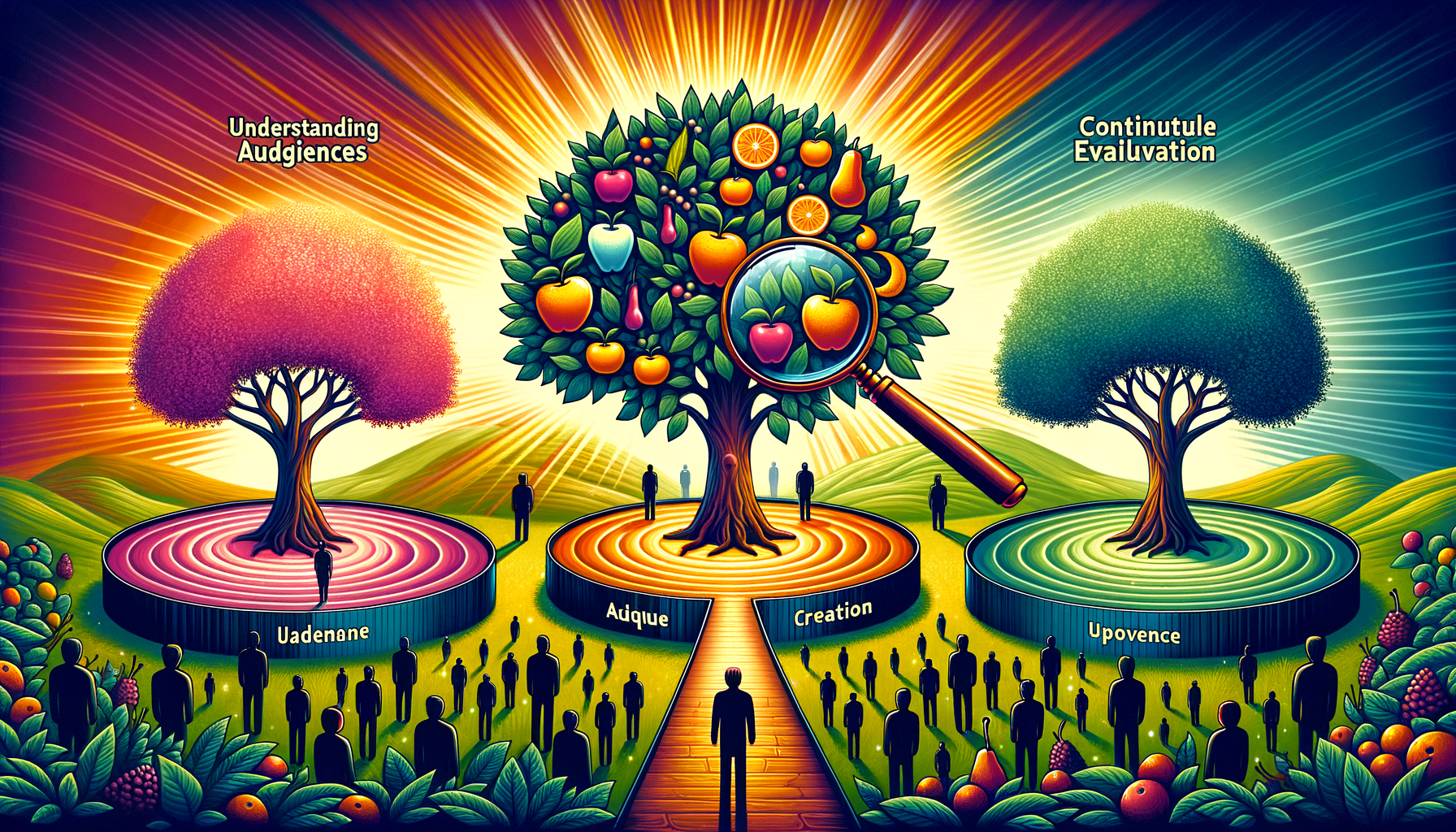“Mastering Your Strategy: The Key Aspects of Effective Content Marketing”

In the era where being digitally proactive is the key to success, the right content marketing strategy can give you an upper hand in the business battleground. Content marketing has indeed become one of the most effective ways to attract and engage customers in the digital world. The only difference between triumph and failure is how effectively you leverage your content marketing strategy for your brand’s advancement.
Well, let’s take a sneak peek into what content marketing is all about before diving deep into the strategic part of it. Content marketing is a customer-oriented and strategic marketing approach for creating and distributing valuable, relevant and consistent content online that engages targeted audiences. The ultimate aim is to attain profitable customer action.
Creating a successful content marketing strategy involves focusing on your business goals, understanding your audience’s patterns and expectations, creating relevant content that connects with them, and constantly evaluating the success of the tactics to see if they’re working as expected or need adjustments. Now let’s delve into the systematic manner of creating an effective content marketing strategy.
**Understanding the Content Marketing Framework**
Like any other strategy, a sound content marketing strategy also works on a proven framework. This invaluable framework consists of the basic building blocks that answer four fundamental questions.
1. **What are your target audience’s needs and challenges?** Answering this question will convene the premise of your strategy. It is essential to comprehend the challenges, expectations, behaviors, and needs of your target audience before creating relevant content that resonates with them.
2. **How can your content help the audience?** Your content should aim to provide valuable information, solve problems, and inspire your audience. If your content doesn’t serve these key aspects, it may fail to build trust and engagement with them.
3. **What makes your content unique and why should the audience choose it?** The answer to this should be your value proposition. Your content should be unique, highlighting your brand’s unique selling proposition (USP) to differentiate from the competition.
4. **How do you intend to distribute and promote your content?** A well-drafted content distribution and promotion plan will ensure your excellent content reaches the right audience and drives effective engagement.
**Designing a Content Marketing Strategy**
A well-crafted content marketing strategy consists of many critical steps that gradually build up to a master plan that aligns your business objectives and customer needs.
1. **Identify Your Business Goals:** Every strategy begins with a goal. You must identify what you want to achieve with your content marketing strategy. Whether it’s driving more traffic, building brand trust, generating leads, or growing revenues, having clear objectives is vital.
2. **Know Your Audience:** To effectively interact and engage with your audience, you must thoroughly know them. It’s crucial to build customer personas that depict your ideal customers’ demographics, expectations, preferences and online behaviors. These personas will guide your content creation efforts.
3. **Conduct a Content Audit:** A content audit helps identify what’s working and what isn’t. Assess your existing content on various metrics like traffic generated, social shares, conversion rate and SEO performance. It will help you understand what content performs best and why, guiding you in producing more engaging content in the future.
4. **Choose the Right Content Type:** Choosing the right content type is pivotal to the success of your strategy. Blog posts, articles, infographics, videos, podcasts, eBooks, newsletters, case studies, and guides are some types of content you can leverage. The content type should be select based on your audience’s preferences, platform types, and business goals.
5. **Create High-Quality Content:** Content quality is paramount to attract, engage and retain your audience. Your content should be compelling, informative, relevant, and unique to engage readers and inspire customer action.
6. **Content Distribution and Promotion:** Distributing and promoting your content on the right platforms at the right time is crucial. Primarily use SEO, social media, email marketing, content syndication or paid advert to reach the targeted audience effectively.
7. **Measure and Improve:** Analysis & improvements play a vital role in any strategy. Your job isn’t done once the content goes live. Constant monitoring and adjustments based on analytics’ insights can greatly improve your content marketing strategy’s overall effectiveness.
**Why Planning for a Content Marketing Strategy is Crucial?**
There is a common saying in the marketing world that “Content is king”, and rightly so. A remarkable content marketing strategy acts as a game-changer for your business by delivering unparalleled benefits:
– **Builds Brand Reputation:** High-quality, relevant content establishes your brand as a thought leader in your niche.
– **Boosts SEO Efforts:** Unique and keyword-rich content improves your website’s visibility and ranking on search engines.
– **Improves Customer Engagement:** Great content urges audience to consume, share and interact more.
– **Generates High-Quality Leads:** With compelling call-to-actions, your strategy helps convert visitors into potential leads.
– **Improved ROI:** Your content marketing strategy can drastically improve your marketing efforts’ ROI as it costs less than traditional marketing yet generates thrice the leads.
In conclusion, an effective content marketing strategy can do wonders for your brand’s digital presence. While every brand’s strategy might differ based on their unique goals and customer demands, the central pillar of any successful content marketing strategy lies in creating and distributing valuable, relevant, and consistent content. Furthermore, it’s a long-term commitment and not a one-time project. Stay focused on your goals, know your audience, craft compelling content, choose the right channels for distribution, and consistently measure your results to tune your strategy for continuous improvement.

Recent Comments